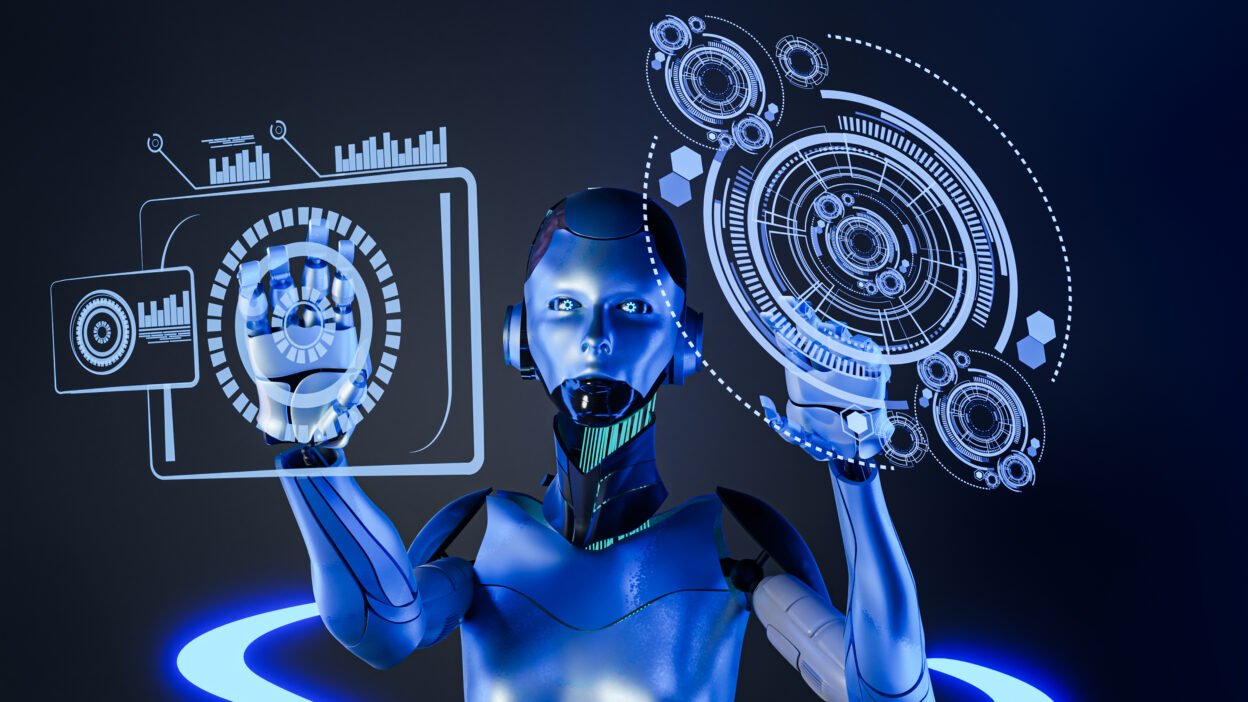Table of Contents
Introduction
Artificial Intelligence (AI) is transforming industries worldwide, and e-commerce is no exception. As the digital marketplace evolves, businesses are increasingly relying on AI to improve efficiency, enhance customer experiences, and stay competitive. From personalized shopping experiences to AI-powered customer support and supply chain management, the integration of AI is reshaping the e-commerce landscape. This article explores five key ways AI is revolutionizing e-commerce businesses and driving growth in today’s fast-paced digital economy.
Artificial Intelligence in E-commerce has become more than just a buzzword; it’s a driving force that enables businesses to stay competitive in an ever-changing digital landscape. By leveraging AI technologies, e-commerce businesses can streamline operations, improve customer interactions, and ultimately boost sales. Let’s dive into the ways AI is changing the e-commerce game.
Personalized Shopping Experiences
One of the most significant ways AI is revolutionizing e-commerce is by offering personalized shopping experiences. Through machine learning and data analytics, AI tools can analyze vast amounts of customer data to predict shopping behaviors, preferences, and trends.
This capability allows online retailers to:
- Offer targeted recommendations: AI-driven algorithms analyze past purchases, browsing history, and customer interactions to suggest products that are most likely to appeal to individual customers. This boosts conversion rates as customers are more likely to purchase products that align with their preferences.
- Dynamic pricing: AI can help businesses implement dynamic pricing models that adjust in real-time based on factors like demand, competitor prices, and customer behavior. This helps maximize revenue while ensuring customers feel they are getting the best deals.
- Customized marketing: AI can segment audiences based on buying patterns and behaviors, ensuring that marketing campaigns are tailored to specific customer groups. This leads to higher engagement and more effective advertising strategies.
Enhancing Customer Support with Chatbots and Virtual Assistants
Customer support has always been a crucial aspect of e-commerce, and AI is making it more efficient and accessible than ever. AI-powered chatbots and virtual assistants are now common in the e-commerce space, providing customers with immediate assistance and improving overall satisfaction.
- 24/7 availability: AI chatbots never sleep. They are available around the clock to address customer inquiries, whether it’s about order status, product information, or troubleshooting. This ensures that businesses can support customers in different time zones and increase retention.
- Instant responses: With natural language processing (NLP), AI chatbots can understand and respond to customer queries in real-time, offering fast and accurate solutions. This reduces wait times and improves the customer experience.
- Cost-effective support: By automating routine inquiries, AI can reduce the need for a large customer service team, allowing businesses to allocate resources more efficiently. This leads to significant cost savings in customer support operations.
Streamlining Inventory Management and Supply Chains
Inventory management and supply chain logistics are often some of the most complex aspects of e-commerce businesses. AI has made significant strides in automating and optimizing these areas, leading to more efficient operations.
- Demand forecasting: AI uses predictive analytics to forecast demand for specific products, allowing businesses to stock up on high-demand items and reduce overstocking of slow-moving inventory. This helps prevent lost sales and excess stock.
- Supply chain optimization: AI can track product shipments in real-time and predict any disruptions in the supply chain. Businesses can proactively adjust their operations to minimize delays and ensure timely delivery to customers.
- Automated restocking: AI-driven systems can automatically reorder products based on real-time data, ensuring that businesses never run out of stock and can meet customer demands seamlessly.
Enhancing Security and Fraud Prevention
As e-commerce grows, so does the need for robust security measures. AI is playing a critical role in enhancing security and protecting both businesses and customers from fraudulent activities.
- Fraud detection: AI algorithms can analyze transaction patterns to identify suspicious behavior and flag potentially fraudulent activities in real-time. This helps reduce the risk of chargebacks, account takeovers, and other forms of fraud.
- Improved authentication: AI is also improving authentication processes, such as facial recognition and biometric authentication, to provide secure and frictionless payment experiences for customers.
- Data protection: With the growing concerns about data privacy, AI systems are used to encrypt sensitive information and ensure that customers’ personal and financial data is kept secure.
Optimizing Advertising and Marketing Campaigns
AI is transforming how e-commerce businesses approach advertising and marketing, making these efforts more targeted and efficient.
- AI-powered advertising: AI can analyze customer behavior and preferences to create hyper-targeted ads that are more likely to resonate with users. This increases the return on investment (ROI) for advertising campaigns.
- Real-time analytics: AI provides businesses with real-time insights into how their marketing campaigns are performing. This allows companies to adjust their strategies on the fly to improve results.
- Social media optimization: AI tools can analyze social media trends and customer sentiment to optimize posts, track brand mentions, and identify influencers who align with the brand. This helps businesses stay ahead of trends and engage with customers more effectively.
Conclusion
AI is undoubtedly transforming the e-commerce industry, driving innovation and providing businesses with powerful tools to stay ahead of the competition. By offering personalized shopping experiences, enhancing customer support, streamlining inventory management, boosting security, and optimizing marketing efforts, AI is making e-commerce more efficient, customer-friendly, and profitable.
For businesses looking to thrive in the digital era, integrating AI into their operations is no longer a choice—it’s a necessity. Embracing AI-powered technologies will not only improve customer satisfaction but also create long-term growth opportunities for e-commerce companies across the globe.
FAQs
How does AI improve the customer shopping experience in e-commerce?
AI enhances the shopping experience by offering personalized product recommendations, dynamic pricing, and targeted marketing based on customer preferences and behaviors.
What role do AI-powered chatbots play in e-commerce?
AI-powered chatbots provide immediate, 24/7 customer support, handle routine inquiries, and reduce wait times, improving overall customer satisfaction.
How does AI optimize inventory management in e-commerce?
AI predicts product demand, tracks shipments in real time, and automates restocking to prevent overstocking and stockouts, ensuring seamless inventory management.
Can AI prevent fraud in e-commerce businesses?
Yes, AI can detect fraud by analyzing transaction patterns and flagging suspicious activity. It also enhances security through advanced authentication methods like biometric verification.
What impact does AI have on e-commerce marketing?
AI optimizes advertising by analyzing customer data to create targeted ads and providing real-time insights to adjust marketing strategies for improved performance.
Is AI essential for the future of e-commerce businesses?
Yes, AI is crucial for the future of e-commerce as it enhances operational efficiency, customer experience, and overall business performance, making it a vital tool for success.




